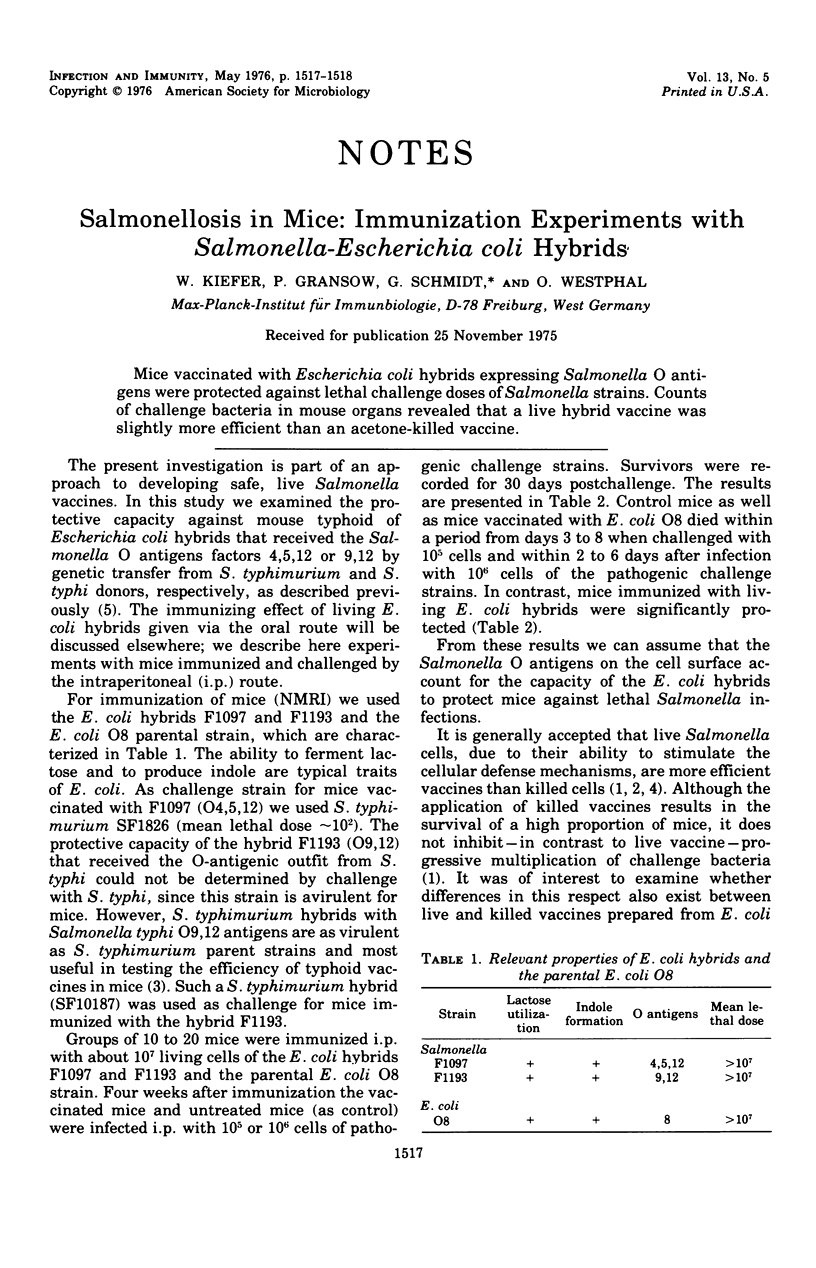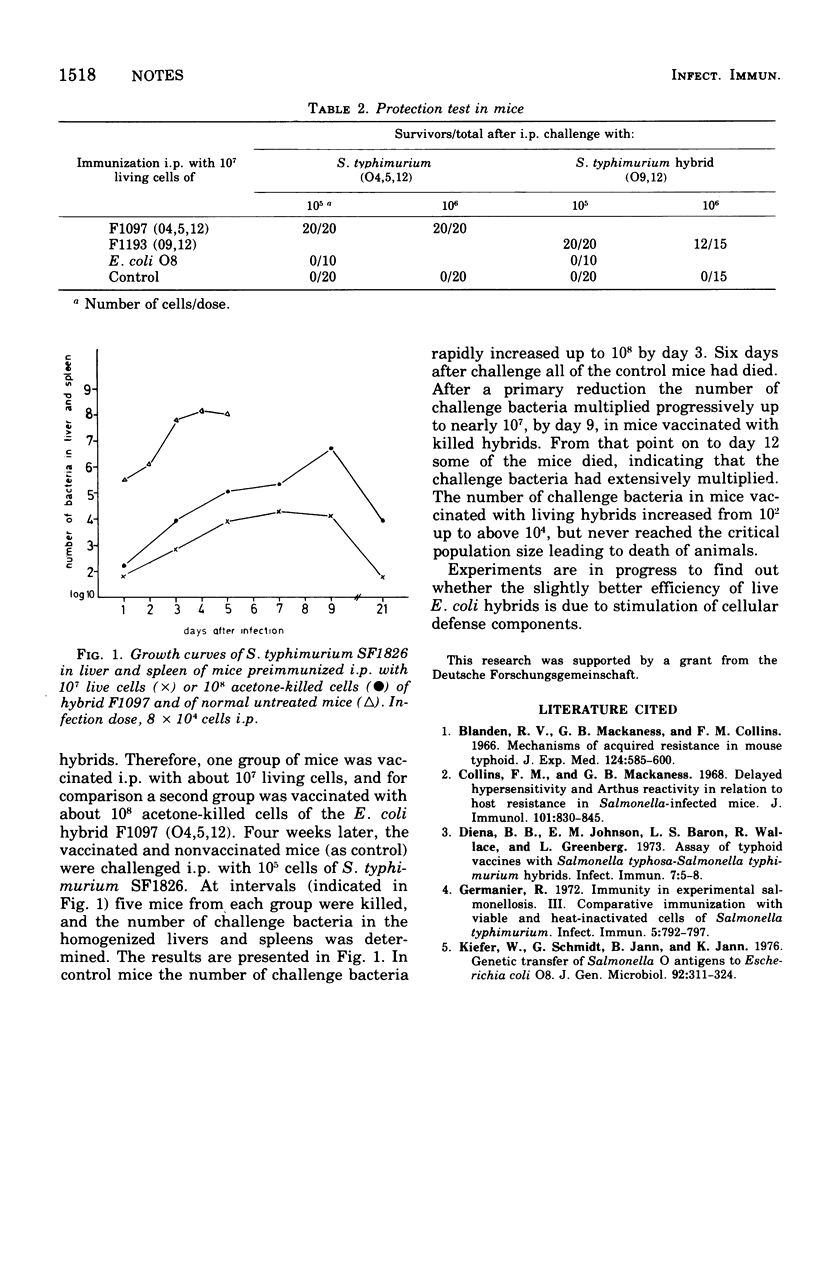Abstract
Mice vaccinated with Escherichia coli hybrids experesing Salmonella O antigens were protected against lethal challenge doses of Salmonella strains. Counts of challenge bacteria in mouse organs revealed that a live hybrid vaccine was slightly more efficient than an acetone-killed vaccine.
Full text
PDF

Selected References
These references are in PubMed. This may not be the complete list of references from this article.
- Blanden R. V., Mackaness G. B., Collins F. M. Mechanisms of acquired resistance in mouse typhoid. J Exp Med. 1966 Oct 1;124(4):585–600. doi: 10.1084/jem.124.4.585. [DOI] [PMC free article] [PubMed] [Google Scholar]
- Collins F. M., Mackaness G. B. Delayed hypersensitivity and arthus reactivity in relation to host resistance in salmonella-infected mice. J Immunol. 1968 Nov;101(5):830–845. [PubMed] [Google Scholar]
- Diena B. B., Johnson E. M., Baron L. S., Wallace R., Greenberg L. Assay of typhoid vaccines with Salmonella typhosa-Salmonella typhimurium hybrids. Infect Immun. 1973 Jan;7(1):5–8. doi: 10.1128/iai.7.1.5-8.1973. [DOI] [PMC free article] [PubMed] [Google Scholar]
- Germanier R. Immunity in experimental salmonellosis. 3. Comparative immunization with viable and heat-inactivated cells of Salmonella typhimurium. Infect Immun. 1972 May;5(5):792–797. doi: 10.1128/iai.5.5.792-797.1972. [DOI] [PMC free article] [PubMed] [Google Scholar]
- Kiefer W., Schmidt G., Jann B., Jann K. Genetic transfer of Salmonella O antigens to Escherichia coli O8. J Gen Microbiol. 1976 Feb;92(2):311–324. doi: 10.1099/00221287-92-2-311. [DOI] [PubMed] [Google Scholar]


